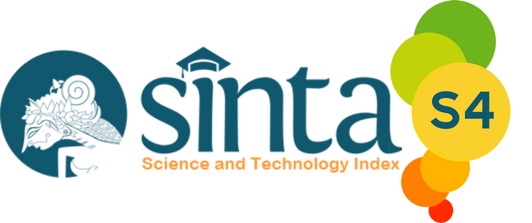DEEMPHASIZE COMMUNITY DEVELOPMENT PROGRAMS ON MIGRAN WORKERS
DOI:
https://doi.org/10.25273/jta.v3i2.2807Keywords:
Migrant Workers, Indonesia, Social Mapping, Community DevelopmentAbstract
Abstract.This study wants to address how migrant workers and their choices to work abroad have impacted its family, especially for economy and infrastructure sector. This paper explains that community development tend to adopt two approaches: micro or macro perspective. Macro perspective focuses on the people or agencies only in terms of their relationship to the large-scale structure, whilst micro-perspective places a greater emphasis on the individual level as the main focus and objective in the development programs. The objective of this research is to seize the structural issues of the migrant workers, and therefore, social mapping method is used. Social mapping is a visual method of showing the relative location of households and the distribution of different types of people (such as male, female, adult, child, landed, landless, literate, illiterate, and so on) together with the social structure and institutions of an area. This research was conducted in Sukowilangun village, near Malang, East Java, as this regency is named one of the largest migrant workers origins.
Keywords: Migrant Workers, Indonesia, Social Mapping, Community Development
Â
Â
Abstrak. Penelitian ini ingin membahas bagaimana pekerja migran dan pilihan mereka untuk bekerja di luar negeri telah mempengaruhi keluarganya, terutama dalam sektor ekonomi dan infrastruktur. Makalah ini menjelaskan bahwa pengembangan masyarakat (community development) cenderung mengadopsi dua pendekatan perspektif yakni mikro atau makro. Perspektif makro hanya berfokus pada orang atau badan yang berkaitan dengan struktur yang berskala besar, sementara perspektif mikro lebih menekankan pada tingkat individu sebagai fokus utamanya dan program pembangunan sebagai objeknya. Tujuan dari penelitian ini adalah untuk menangkap isu struktural dari pekerja migran, penelitian ini menggunakan metode pemetaan sosial (social mapping). Social mapping adalah metode visual untuk menunjukkan lokasi relatif rumah tangga dan distribusi orang dari berbagai jenis (seperti laki-laki, perempuan, dewasa, anak-anak, rumah berubin atau tak berubin, terpelajar, buta huruf, dan lain-lain) bersama dengan struktur sosial dan institusi yang ada di area tersebut. Penelitian ini dilakukan di Desa Sukowilangun, Kabupaten Malang, Jawa Timur, karena kabupaten ini merupakan salah satu asal pekerja migran terbesar.
Kata kunci: Buruh Migran, Indonesia, Pemetaan Sosial, Community Development
Â
Downloads
References
Abas, S., & Widyahseno, B. (2016). Model Pemberdayaan Tki Pasca Migrasi Melalui Ekonomi Produktif Menuju Keluarga Sakinah. Muaddib: Studi Kependidikan dan Keislaman, 4(1), 1-19.
Assumpta & Suharko, S. (2016). Praktek Pemberdayaan Tenaga Kerja Indonesia Purna di BP3TKI (Balai Pelayanan Penempatan Perlindungan Tenaga Kerja Indonesia) Yogyakarta (Doctoral dissertation, Universitas Gadjah Mada).
Bhattacharyya, 1995
Bhattacharyya, 2004 Campfens, 1997 Celot, 2012
Christenson, AJ, Fendley & Robinson, 1989;
Chu & Lee 2014
De Haan, A., & Yaqub, S. (20 10). Migration and poverty: Linkages, knowledge gaps and policy implications. In South-South Migration (pp. 190-219). Palgrave Macmillan UK.
Denise & Harris 1989; Hugo, 2009
Hustedde & Ganowicz 2002 Ife (2002)
Ife (2007)
Ife (2013)
ILO, 2008
IOM, 2010
Kenny, 2006
Mascarenhas J, Kumar PDP. Participatory mapping and modelling users’ notes.
RRA Notes 1991; 12: 9–20 Morrow, 1999
Oishi, N. (2002). Gender and migration: an integrative approach. Center for Comparative Immigration Studies.
Perrin (2015)
Pezzulo G. Working memory. Institute of cognitive science and technology – CNR, Roma, Italy2007.
Rambaldi G. Who owns the map legend?. URISA 2005; 17(1)5–13
Siegel, M., & Waidler, J. (2012). Migration and multi-dimensional poverty in Moldovan communities. Eastern Journal of European Studies, 3(2).
Sontheimer S, Callens K, Seiffert B, 1999. Conducting a PRA (Participatory Rural Appraisal) training and modifying PRA tools to your needs: an example from a participatory household food security and nutrition project in Ethiopia. Joint back to office report, Technical Backstopping to the Preparatory Phase of GCP/ETH/056/BEL, Food and Agriculture Organization of the United Nations.
Swanepoel, Hennie, & De Beer, 2006 Warren A, 2004. International forum on indigenous mapping for indigenous advocacy and empowerment. The indigenous communities mapping initiative. Personal communication cited in Rambaldi (2005)
Wijayaningtyas, A., Darmawan, D. A., & Sos, S. (2016). Pemberdayaan TKI Purna dan Keluarganya Melalui Pembentukan Sentra Usaha (Studi tentang Implementasi Pemberdayaan Kelompok TKI Purna Tunas Jaya Desa Nglanggeran, Kecamatan Patuk, Kabupaten Gunungkidul, Daerah Istimewa Yogyakarta) (Doctoral dissertation, Universitas Gadjah Mada).
World Bank (2005) Poverty and Social Impact Analysis Sourcebook http://go.worldbank.org/ZGZHJEDB Z0
Downloads
Published
Issue
Section
License
With the receipt of the article by Jurnal Terapan Abdimas Editorial Board and the decision to be published, the copyright regarding the article will be transferred to Jurnal Terapan Abdimas.
Jurnal Terapan Abdimas has the right to multiply and distribute the article and every author is not allowed to publish the same article that was published in this journal.
Every accepted manuscript should be accompanied by "Copyright Transfer Agreement" prior to the article publication.
Jurnal Terapan Abdimas by http://e-journal.unipma.ac.id/index.php/jta is licensed under a Creative Commons Attribution-ShareAlike 4.0 International License.
Â
Â





